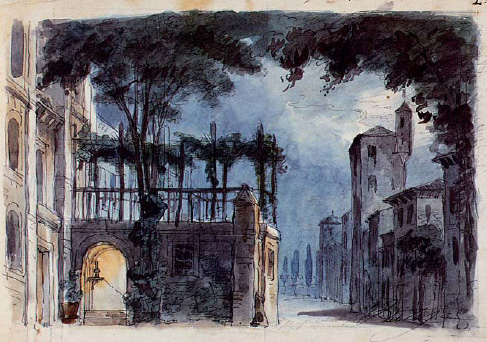Verdi, Caro nome (from Rigoletto)
Caro nome translates as “dear name.” Unfortunately, the dear name that Gilda knows at this point in Act I of Verdi’s opera Rigoletto (1851) is a false one. Gilda, daughter of the court jester Rigoletto, thinks she has just fallen in love with a poor student named Gaultier Maldè.
In fact, she has developed a foolish teenage crush on the Duke in disguise. Without knowing the opera, you could safely predict that things will get progressively worse.

Opera, and theater in general, is filled with stories of people in disguise. In Rigoletto, Gilda will soon discover the deception, but she will learn nothing from it. Who knew that infatuation could get in the way of rational thought?
Oh well. As Professor Carol noted in her post “Mimi Dies,” opera plots always proceed to the same disastrous conclusion and there’s nothing we can do to change that.
The role of Gilda calls for a coloratura soprano. The term “coloratura” appears in the early 17th century to describe ornamentation in music. Highly ornamented melodies figured prominently in music of the Baroque era, both in opera and other genres. But it was later that the term acquired its principal association with sopranos singing virtuosic passages in the highest vocal register.
In the scene that ends Act I, Rigoletto is duped into facilitating the abduction of Gilda. Allowing himself to be blindfolded, he holds the ladder as the abductors climb up to Gilda’s room.
You may recall soprano Nadine Sierra from a previous Performance Pick. Here is an English translation of Gilda’s aria:
Walter Maldè… name of the man I love,
be thou engraved upon my lovesick heart!Beloved name, the first to move
the pulse of love within my heart,
thou shalt remind me ever
of the delights of love!
In my thoughts, my desire
will ever fly to thee,
and my last breath of life
shall be, beloved name, of thee.



